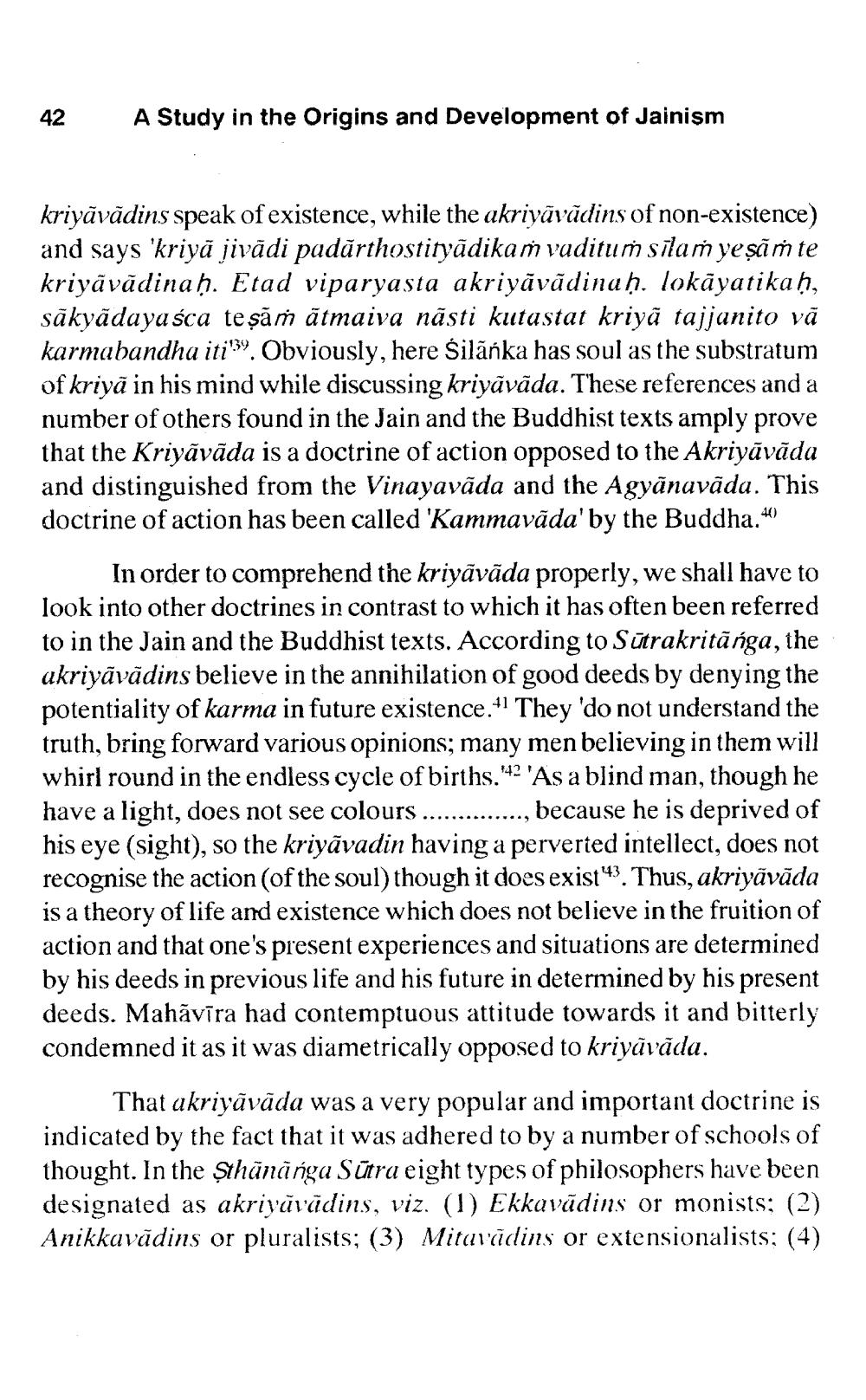________________
42
A Study in the Origins and Development of Jainism
kriyāvādins speak of existence, while the akriyāvādins of non-existence) and says 'kriyā jivādi padārthostityādikas vadituṁ silaṁ yeşāṁ te kriyāvādinaḥ. Etad viparyasta akriyāvādinaḥ, lokāyatikaḥ, sākyadayaśca teşāṁ ātmaiva năsti kutastat kriyā tajjanito vă karmabandha iti'. Obviously, here Silãnka has soul as the substratum of kriya in his mind while discussing kriyāvāda. These references and a number of others found in the Jain and the Buddhist texts amply prove that the Kriyavāda is a doctrine of action opposed to the Akriyāvāda and distinguished from the Vinayavāda and the Agyānavāda. This doctrine of action has been called 'Kammavāda' by the Buddha.4)
In order to comprehend the kriyāvāda properly, we shall have to look into other doctrines in contrast to which it has often been referred to in the Jain and the Buddhist texts. According to Sūtrakritānga, the akriyāvādins believe in the annihilation of good deeds by denying the potentiality of karma in future existence." They 'do not understand the truth, bring forward various opinions; many men believing in them will whirl round in the endless cycle of births.'2 'As a blind man, though he have a light, does not see colours .............., because he is deprived of his eye (sight), so the kriyāvadin having a perverted intellect, does not recognise the action (of the soul) though it does exist'43. Thus, akriyāvāda is a theory of life and existence which does not believe in the fruition of action and that one's present experiences and situations are determined by his deeds in previous life and his future in determined by his present deeds. Mahāvīra had contemptuous attitude towards it and bitterly condemned it as it was diametrically opposed to kriyavāda.
That akriyāvāda was a very popular and important doctrine is indicated by the fact that it was adhered to by a number of schools of thought. In the Şthânănga Sūtra eight types of philosophers have been designated as akriyůvädins, viz. (1) Ekkavādins or monists; (2) Anikkavādins or pluralists; (3) Mitavaidins or extensionalists; (4)




